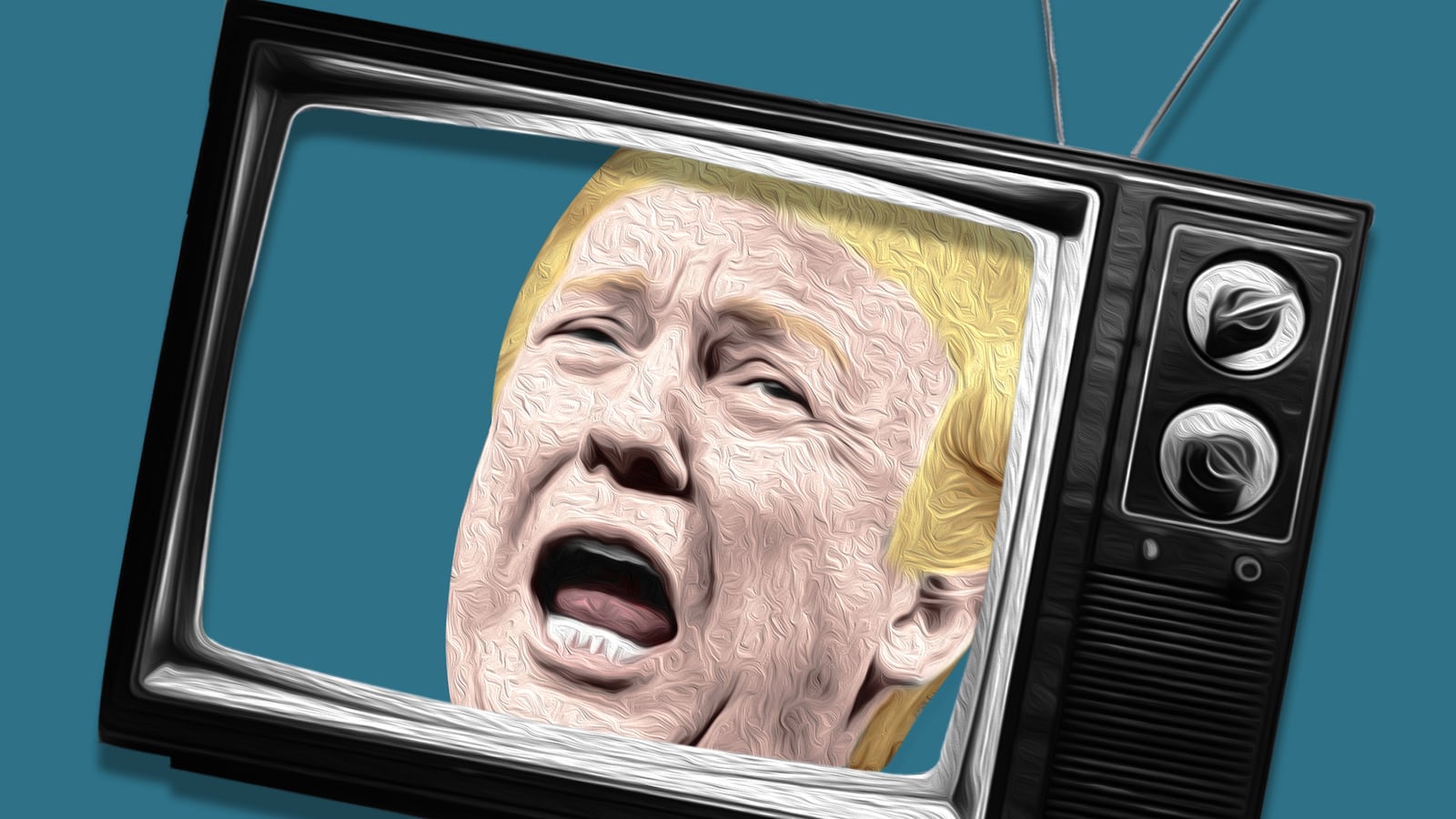On Wednesday, a visibly enraged Donald Trump made clear that he’s not just interested in trashing the anonymous whistleblower whose complaint helped trigger the biggest existential crisis of his presidency. He’s also itching to ruin the life of Rep. Adam Schiff (D-CA), the chairman of the House Intelligence Committee who has led the investigation into the complaint and who finds himself, once more, as the bête noire of the Trump presidency.
During a press conference that was notable, even by Trump standards, for the pique in the president’s tone, Trump claimed—without any evidence—that Schiff had helped write the whistleblower’s complaint that included details about Trump’s now infamous July 25 phone conversation with the Ukrainian leader. He called the congressman a “fraud” after previously accusing him of treason and demanding that he resign.
Elsewhere, Rudy Giuliani—Trump’s personal attorney who is at the center of the president’s scandalous quest to enlist the Ukrainian government into investigating the Biden family—teased the scenario of the president suing the Democratic lawmaker. Giuliani later told The Daily Beast that he and Trump have privately discussed and are “considering a lawsuit against a number of people but [Schiff is] one of the worst in terms of provable false statements”—a threat that seems, at least for now, unlikely to go far.
The decision to focus so heavily on Schiff marked a classic roll of the dice for the president and his team. Faced with an investigation into the unseemly inner workings of his administration, Trump has chosen to villainize his investigator. It was a tactic he applied with some success to Special Counsel Robert Mueller, whose probe revealed a sustained attempt to obstruct Mueller’s own investigation. But unlike Mueller–who operated in almost complete silence for two years—Schiff has chosen to engage the vitriol directly.

“I think Americans have to be worried about the stability of our president given the enormously erratic and dangerous swings we have seen him take in the last few days,” the congressman told The Daily Beast during a brief interview on Wednesday. “It is alarming.”
Whether Trump can turn questions about the propriety of his attempts to dig up dirt on Biden into a discussion about the merits of the investigation into those attempts could very well determine the future of his presidency. He certainly seems keen on trying to make it work. On Wednesday, he swiftly decried reports that an emissary of the whistleblower had reached out to Schiff’s Intelligence Committee staff, who then advised him to go through the formal channels of filing a complaint.
Schiff had previously denied that his staff had contact with the whistleblower before the complaint was flagged for them by the Intelligence Community’s Inspector General. On Wednesday, he said that he did not know definitively at the time if the complaint had been authored by the same whistleblower who had approached his staff. But he acknowledged that he “should have been much more clear.”
“We try not to confirm when people have come in. I was really thinking along the lines of wanting to get him to come in to testify,” Schiff told The Daily Beast. “I regret that I wasn't much more clear.”
Such nuance is unlikely to win converts inside the White House where anger among senior staff seems to be firmly directed at the congressman and driven by a belief that his inaccuracies are covered more sympathetically than the president’s. One senior aide even proclaimed that Trump was “far more focused” on Schiff than he was on the identity of the whistleblower himself.
But others in the administration say that the president remains consumed by the source of the written complaint now threatening to derail his presidency.
Since late last week, Trump has asked officials and advisers what the legal options are if the currently anonymous whistleblower is ever unmasked or named in news reports, according to two people who’ve heard the president discuss this. Trump, one of these sources said, has also privately voiced his belief that it is only a matter of time until the whistleblower goes on the record, or the identity becomes public or gets printed.
The president’s fascination with this person’s name has not gone unnoticed by the whistleblower’s legal team. Andrew Bakaj, the whistleblower’s lead attorney, has said that Trump’s public comments have “heightened our concerns that our client’s identity will be disclosed publicly and that, as a result, our client will be put in harm’s way.” (The whistleblower currently enjoys anonymity under long-established federal legal protections in such cases.)
Still, there is a rapidly growing appetite in Trumpworld for this whistleblower to show himself, and take all the abuse and consequence that would invariably come with it.
“If the president wants to… talk to foreign official, and it's sensitive and it doesn't meet the approval of some anonymous deep-stater, then tough bananas,” said former Rep. Jack Kingston (R-GA), now a Trump surrogate. “If this guy is so self-righteous, why doesn't he come out like a man and... go on the record, and charge up the hill and sound the alarm?”







